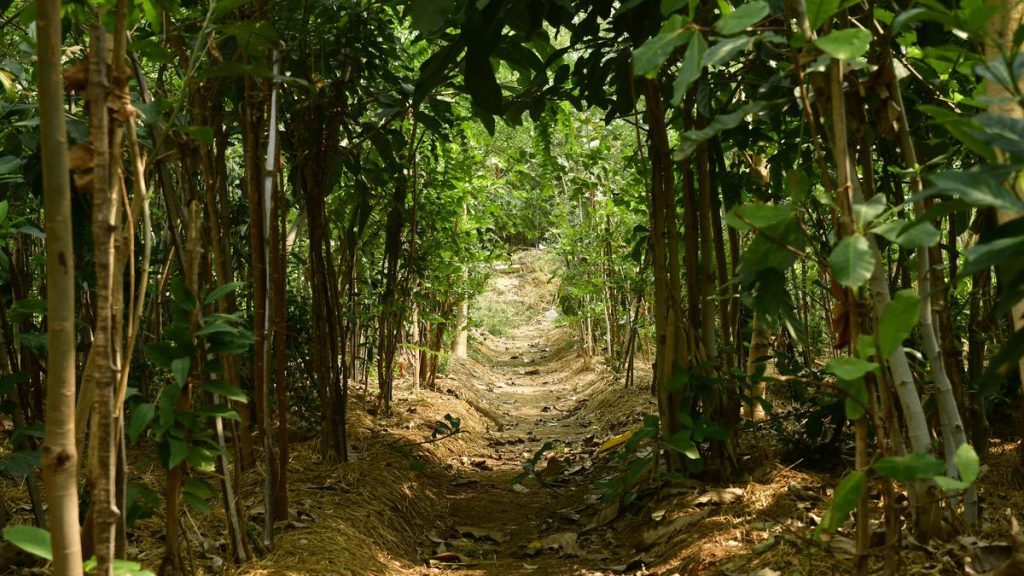Context:
The Embassy of Israel in India, officially joined the ‘Million Miyawaki’ project.
More on the news
- The Million Miyawaki Foundation, a non-profit organization, collaborated with the Israeli embassy to join the ‘Million Miyawaki’ project.
- The Million Miyawaki project is a community-led initiative aimed at improving air quality in Indian cities through mass afforestation in tight urban spaces.
- This project aims to plant a million trees in Delhi-NCR by creating ‘forest-like’ Miyawaki plantations of 600 trees each, with a variety of up to 30 different locally sourced species.
About Miyawaki Method
- It is developed by Japanese botanist Akira Miyawaki, it focuses on replicating natural forest regeneration processes to establish ecologically diverse and resilient ecosystems.
- The Miyawaki Method is a technique for creating dense, native forests quickly.
- The method emphasizes using only plant species native to the specific area.
- Trees are planted very close together, mimicking natural forest density. This encourages competition for light and resources, leading to faster vertical growth and maximizing canopy cover.

The benefits of a Miyawaki forest
- Forests created using the Miyawaki Method grow 10 times faster than traditional plantations and reach maturity within 20-30 years.
- The diverse plant communities provide habitat for a wide range of species, promoting a healthy ecosystem.
- Due to its focus on small spaces and minimal maintenance, the Miyawaki Method is well-suited for creating urban forests and green spaces in cities.
- It increases soil- and forest biodiversity
- It increases carbon sequestration, increases forest resilience, and reduces maintenance costs.

